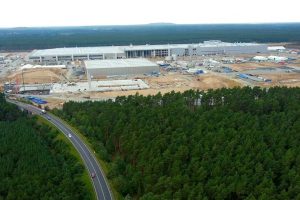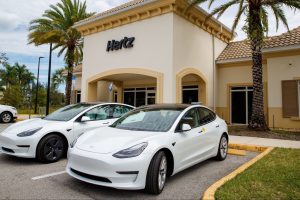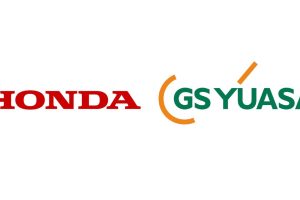A recent letter from the US Securities and Exchange Commission (SEC) states that Tesla lawyers must still pre-approve Elon Musk’s company-related tweets, even though the billionaire won the case centered on his infamous “funding secured” tweet in 2018.
In a letter to the US Court of Appeals for the 2nd Circuit in New York, the SEC argued that Musk’s earlier settlement with the agency is constitutional and valid. Musk’s settlement followed an SEC investigation into the CEO’s “funding secured” claims in 2018. It was also agreed that tweets containing material Tesla-related information would be reviewed by a lawyer — fondly dubbed the CEO’s “Twitter Sitter” by the internet — before Musk posts them.
Elon Musk’s legal team submitted a brief to a court of appeals in September 2022, seeking relief from what they alleged was a “government-imposed muzzle” that inhibits the CEO’s speech. The appeal came a month after a federal judge denied Musk’s motion to terminate his settlement provision with the SEC.
Earlier this month, a jury found that Elon Musk and Tesla were not liable in a class-action securities fraud trial centered on the CEO’s “funding secured” tweet. Musk’s lawyers then argued earlier this week that the jury verdict should be considered in an appeal against the CEO’s SEC settlement provision.
“In light of the jury finding that Mr. Musk’s tweets did not violate Rule 10b-5, the SEC lacks support both for the consent decree itself and for its arguments on appeal. The verdict provides further reason why the public interest in avoiding unconstitutional settlements easily subsumes the SEC’s purported stake in the consent decree,” Alex Spiro, one of Musk’s lawyers, wrote.
The SEC has responded to Musk’s legal team, arguing that the findings of the jury in a private securities-fraud action does not identify a “pertinent and significant” authority. The SEC also argued that Musk is “reading too much” into his jury verdict.
Following is the SEC’s response.
“Appellant Elon Musk’s letter notifying this Court about a jury verdict in a private securities-fraud action does not identify a ‘pertinent and significant’ authority. Musk waived his opportunity to test the Commission’s allegations at trial when he voluntarily agreed (twice) to a consent judgment. The district court properly rejected his request to alter the judgment because there were no “significant” changes in factual conditions or the law that justified relief under Rule 60(b)(5). Musk asserts that the consent judgment now “lacks support” given “the jury’s finding,” but this is a non-sequitur; the consent judgment was not conditioned upon the outcome of the private litigation.
“Even if the verdict were somehow relevant, Musk reads too much into it. The Commission had no role in that case. Unlike in a Commission action, the private plaintiff had to prove reliance, loss causation, and damages, In re Tesla , Dkt. 655, at 7-17 (jury instructions), and it is unknown whether the verdict turned on elements that would not burden the Commission at trial, id. , Dkt. 671, at 2-3 (verdict form). Moreover, the court instructed the jury to assume that Musk’s tweets “were untrue,” which confirms the discrete point the Commission was making when it referenced the private action in its brief. Id., Dkt. 655, at 7-8.
“Ultimately, the verdict has no bearing on whether the district court correctly declined to grant the extraordinary remedy of altering Musk’s consent judgment years after entry. The verdict says nothing about the continuing public interest in a negotiated settlement term that does not preclude Musk from tweeting accurately about Tesla or other topics, but rather requires Tesla to review Musk’s Tesla-related communications before publication, including through Musk’s Twitter feed—a communication channel designated by Tesla for disclosure. And the verdict does not justify the inapt application of the ‘unconstitutional conditions’ concept to settlements, even if this Court were to overlook Musk’s forfeiture of any arguments regarding that concept,” the SEC wrote.
It remains to be seen whether the court will uphold or dismiss the letter submitted by Musk’s legal team. The appeal is expected to be heard in the spring, although an exact date has not yet been scheduled.





